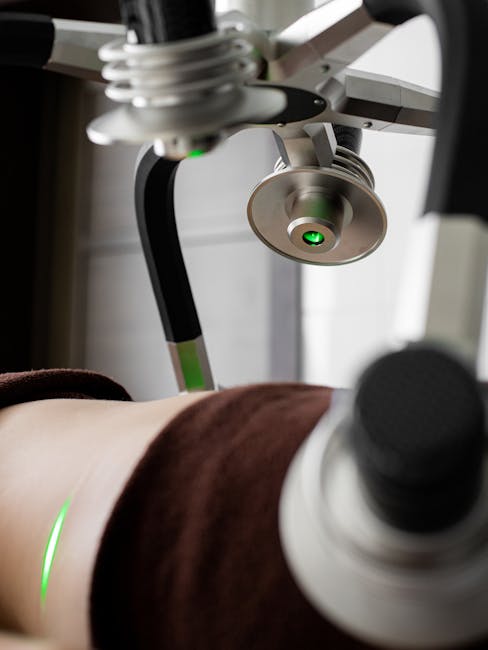The Importance of Self-Care in Fat Loss
In the pursuit of fat loss, many individuals focus solely on diet and exercise, often neglecting the critical role of self-care in achieving their goals. While calorie counting and rigorous workout routines are essential components, self-care practices can enhance these efforts by improving mental health, motivation, and overall well-being. This blog post delves into the significance of self-care in fat loss, offering insights, statistics, and actionable tips to help you integrate these practices into your lifestyle.
Understanding Self-Care: More than Just Pampering
Self-care is frequently misunderstood as indulgence, but it encompasses a broad range of activities aimed at maintaining physical, mental, and emotional health. It involves intentional actions and practices that promote a balanced lifestyle. According to a survey by the American Psychological Association, 42% of adults reported that they engage in self-care less than once a week, highlighting a significant gap in health maintenance strategies.
The Connection Between Self-Care and Fat Loss
The relationship between self-care and fat loss is rooted in stress management and mental health. Chronic stress can lead to hormonal imbalances, particularly an increase in cortisol levels, which is associated with weight gain, especially around the abdomen. Self-care practices such as mindfulness, meditation, and adequate sleep can help reduce stress and regulate these hormones, facilitating fat loss.
Stress Reduction: A Key Component
Incorporating stress reduction techniques into your routine is a crucial aspect of self-care for fat loss. Mindfulness meditation, for example, has been shown to lower cortisol levels by 20% in just a few weeks of practice. Regular participation in yoga or tai chi can also enhance body awareness and reduce stress, contributing to healthier eating habits and weight management.
Mindful Eating
Mindful eating is a self-care practice that encourages individuals to focus on their eating experience, promoting better food choices and portion control. By slowing down and savoring each bite, you become more attuned to your body’s hunger and fullness cues, leading to a natural reduction in calorie intake. Studies have shown that mindful eating can reduce binge eating episodes by 50%, significantly aiding fat loss efforts.
The Role of Sleep in Self-Care and Fat Loss
Quality sleep is a critical yet often overlooked aspect of self-care that directly impacts fat loss. Research indicates that individuals who sleep less than 7 hours per night are at a higher risk of obesity. Sleep deprivation disrupts the balance of hormones that regulate appetite, particularly ghrelin and leptin, leading to increased hunger and cravings.
Improving Sleep Hygiene
To enhance your sleep quality, establish a consistent bedtime routine, create a calming sleep environment, and limit exposure to screens before bed. Aim for 7-9 hours of sleep per night to ensure optimal recovery and hormonal balance, supporting your fat loss journey.
Physical Activity and Self-Care
While exercise is a well-known component of fat loss, viewing it as a form of self-care can shift your perspective and enhance your motivation. Engaging in physical activities that you enjoy, whether it’s dancing, hiking, or swimming, can make exercise feel less like a chore and more like a rewarding experience.
Finding Joy in Movement
Experiment with different forms of exercise to discover what brings you joy. This approach not only increases adherence to an active lifestyle but also boosts mood and self-esteem, creating a positive feedback loop that supports fat loss.
Nutrition as Self-Care
Nourishing your body with nutrient-dense foods is a fundamental aspect of self-care. Opt for a balanced diet rich in whole grains, lean proteins, healthy fats, and plenty of fruits and vegetables. This not only supports fat loss but also enhances overall health and energy levels.
Meal Planning and Preparation
Planning and preparing meals in advance can help you maintain control over your diet, reduce stress, and prevent unhealthy eating choices. Consider dedicating a day each week to plan your meals, shop for groceries, and prepare ingredients. This proactive approach is an act of self-care that saves time and promotes healthier eating habits.
Emotional Well-being and Self-Care
Emotional health is a critical component of self-care that influences fat loss. Addressing emotional eating triggers through therapy, journaling, or support groups can help you develop healthier coping mechanisms. Acknowledging and processing emotions reduces reliance on food for comfort, supporting sustainable fat loss.
Building a Support System
Surround yourself with a support network of friends, family, or online communities that encourage your self-care and fat loss efforts. Sharing experiences and receiving encouragement can enhance motivation and accountability, making the journey more enjoyable and successful.
Conclusion: Embrace Self-Care for Sustainable Fat Loss
Incorporating self-care into your fat loss strategy is essential for achieving long-term success. By prioritizing mental health, stress management, quality sleep, and emotional well-being, you create a foundation that supports not only fat loss but also overall wellness. Remember, self-care is not a luxury; it is a necessity for a balanced and fulfilling life. Start integrating these practices today to enhance your fat loss journey and achieve sustainable results.

